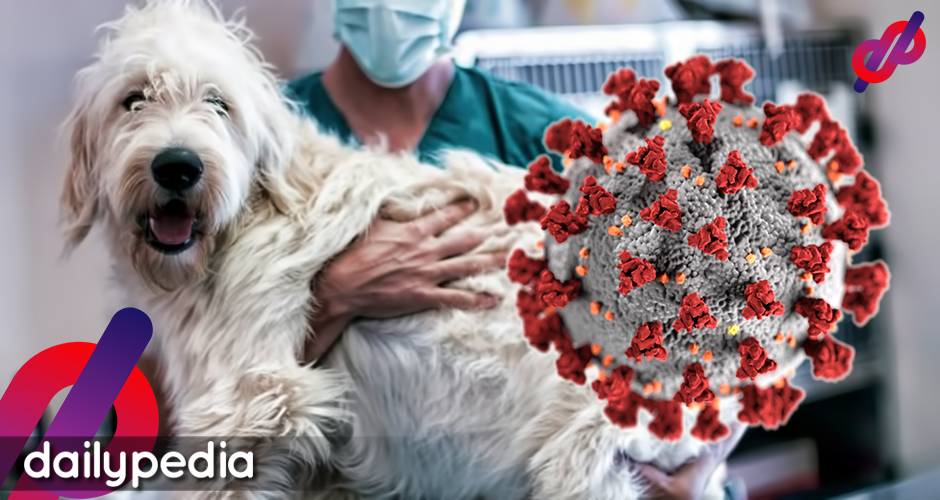The Cartimar pet store in Pasay City has recently been getting the attention of many netizens. Multiple posts suggest that owners have abandoned their pets in the store due to the coronavirus pandemic.

Transgender @gigiesguerra went to Twitter and shared how pets were left behind by their owners.
Concerned citizens expressed their thoughts on the matter.
https://twitter.com/Joe59987705/status/1240555023550935041?s=20
https://twitter.com/carelesscarlo/status/1240747730156175360?s=20
May abandoned pets daw sa Cartimar. Sana matulongan po sila. :'( Please.
— Sherlyn Jhaynecca (@jhaynecca) March 19, 2020
https://twitter.com/JHRcabrera/status/1240596303228223492?s=20
https://twitter.com/todger8/status/1240572539790753792?s=20
https://twitter.com/arianoval2/status/1240723329264152576?s=20
@alex947 can you make a plea for the dogs and cats abandoned at Cartimar. No food. No water. Pawlease!!?
— carmen watkins (@carmenwatkins1) March 19, 2020
But new posts have made it clear that there are personnel taking care of the animals.
Taliwas sa viral post sa social media, siniguro ng mga barangay official at pamunuan ng Cartimar sa Pasay City na may mga bantay sa mga puwesto na nagbebenta ng mga pets. Naabutan pa namin na naglilinis ang mga ito ng mga stalls kahit pa sarado dahil sa enhanced comm quarantine. pic.twitter.com/TWtzVbTF7A
— Laila Chikadora Pangilinan (@lailachikadora) March 20, 2020
https://twitter.com/marc_na_pula/status/1240809755041390597?s=20
https://twitter.com/suzzyvip/status/1240848094024982528?s=20
https://twitter.com/suzzyvip/status/1240848286740656128?s=20
Pawssionproject has also helped out by enumerating clinics that still provide services for animals in Metro Manila.
https://www.instagram.com/p/B96M8TcpDPT/?utm_source=ig_web_copy_link
There is still a lot that experts do not know about COVID-19 but what is certain is that older people are at a higher risk of getting the virus. The best interventions people can do is to wash hands with soap regularly and practicing social distancing.
The good news is that the World Health Organization (WHO) confirmed that pets, such as cats and dogs, cannot spread the virus.
There has been a report that a dog from Hong Kong was infected with the virus, but did not transmit it.
“While there has been one instance of a dog being infected in Hong Kong, to date, there is no evidence that a dog, cat or any pet can transmit COVID-19.”
“COVID-19 is mainly spread through droplets produced when an infected person coughs, sneezes, or speaks. To protect yourself, clean your hands frequently and thoroughly.”
Christie Long, DVM, head of veterinary medicine at Modern Animal, says the dog never had any problems when it allegedly contracted the virus. The virus might have just landed on the dog’s fur, but brought zero symptoms.
“The dog never became clinically ill, and it remains unclear whether the dog tested positive from being kept in an environment with a COVID-19-infected human or if the dog truly became infected with COVID-19.
“Since the dog lives with a COVID-19 patient, the potential is significant for the positive test to have come as a result of the dog picking up the virus from the environment with its nose,” she added.
Long says that dogs can actually get different variations of coronavirus, and that puppies are most susceptible.
“The disease tends to be mild and self-limiting.”
“Puppies are the most at-risk for serious infection, and following your veterinarian’s advice regarding keeping very young puppies quarantined at home until fully vaccinated (typically 16 weeks of age) is key to protecting them from the most common infectious diseases that can affect them.”
Zoonotic diseases are defined as those that can be transmitted from an animal to a human being. The CDC says that more than 6 out of every 10 known infectious diseases in people are spread from animals, and 3 out of every 4 new or emerging infectious diseases in people are spread from animals.
Animals can transmit diseases to humans through bodily fluids, feces, and surfaces like aquariums, water, and food bowls, and barns. Salmonella and E. Coli which are Food- and water-borne illnesses are also considered zootonic. These diseases pose higher risks to young children the immunocompromised, and those older than 65 more than others.
The best defense against these diseases would be to wash your hands after touching your pet or their stuff.
“As we’ve all been reminded, routine hand-washing is the first line of defense to the majority of common pathogens,” says Long.
This is a good practice to develop to maintain a healthy environment at home.
“Washing your hands after interacting with your dog is an excellent habit to develop, and reminding small children of the same (or doing it for them) will help to keep everyone in the family healthy.”
It is also good to remind children to not put their hands in their mouth after playing with pets. People should stop letting dogs lick their face because these animals’ mouths carry a lot of germs.
If you think your pet has been infected with the new coronavirus, you can wipe their paws with paw wipes before letting them inside your home.


